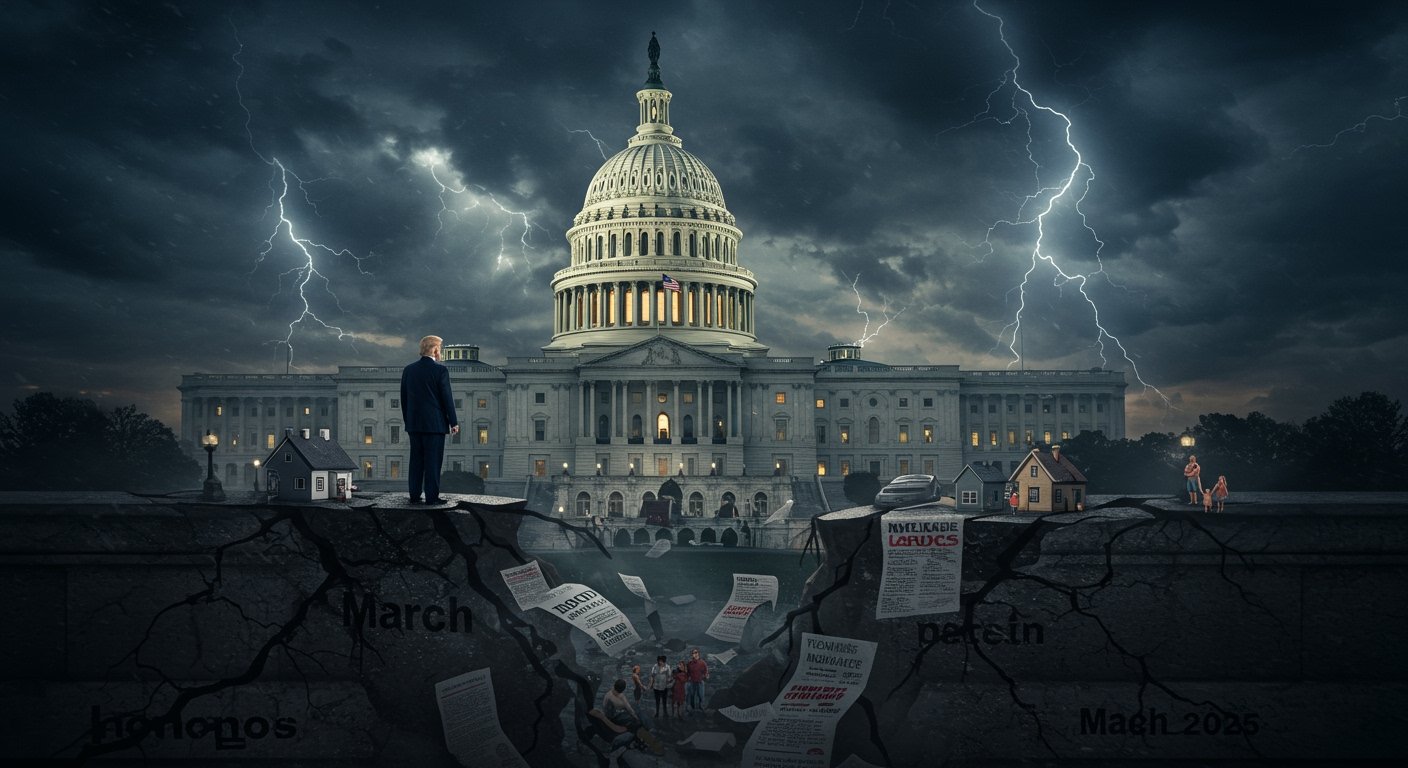In a highly contentious move that has ignited legal challenges, the Trump administration on March 16, 2025, deported nearly 300 Venezuelans to El Salvador, employing the rarely invoked Alien Enemies Act of 1798. This action proceeded despite a temporary order issued by a federal judge explicitly blocking the use of this centuries-old law for deportations, setting the stage for a significant legal confrontation over executive authority and judicial oversight in immigration matters.
Administration Justifies Action, Citing Gang Affiliations
The administration defended the controversial deportation by stating that the individuals were members of the Venezuelan gang Tren de Aragua [11, 14]. This assertion was presented as the basis for categorizing the deportees under the Alien Enemies Act, a law enacted during a period of strained relations with France, intended to allow the President to apprehend and deport male citizens of a hostile nation during declared war or invasion.
Some reports further indicated that members of the notorious MS-13 gang were also among the group deported [12, 15]. The administration has consistently highlighted the perceived threat posed by international gangs like Tren de Aragua and MS-13 as justification for stringent immigration enforcement measures. The use of the 1798 act suggests an attempt to bypass standard immigration procedures and protections, raising alarms among civil liberties advocates.
Legal Battle Unfolds as ACLU Challenges Authority
Critically, the deportation took place even after U.S. District Judge James Boasberg in Washington, D.C., issued a temporary order blocking the Trump administration from using the Alien Enemies Act of 1798 for deportations. This judicial intervention followed a legal challenge filed by the American Civil Liberties Union (ACLU) [12, 15].
The ACLU argued that applying the Alien Enemies Act of 1798 to modern-day deportations was an overreach of executive power, unconstitutional, and deprived individuals of fundamental due process rights typically afforded in immigration proceedings. Judge Boasberg’s order signaled a preliminary agreement with the ACLU’s argument that the use of such an archaic law in this context warranted judicial scrutiny, placing the administration in direct defiance of a court order by proceeding with the planned deportations on March 16, 2025.
Reception and Detention in El Salvador
Upon arrival in El Salvador, the deportees were met with a visible show of force and swiftly taken into custody. El Salvador President Nayib Bukele himself publicized the event, posting video footage of the individuals arriving and being processed by Salvadoran authorities [11, 14].
Reports from El Salvador, congruent with claims about the deportees’ alleged gang affiliations, indicated that some were sent to the country’s high-security Terrorism Confinement Center [12, 15]. This facility is part of President Bukele’s controversial crackdown on gangs within El Salvador, particularly targeting groups like MS-13, further underscoring the narrative presented by the Trump administration regarding the identities and perceived threat posed by the deported individuals.
Broader Context and Implications
The Trump administration’s decision to invoke the Alien Enemies Act of 1798 represents a significant departure from typical immigration enforcement mechanisms. While previous administrations have debated its potential use in specific, limited circumstances, its broad application in a mass deportation scenario, especially for individuals identified primarily as gang members rather than declared combatants of a hostile nation, is unprecedented in modern times.
The legal challenge mounted by the ACLU and the subsequent temporary injunction from U.S. District Judge James Boasberg highlight a growing tension between executive efforts to control immigration through novel legal interpretations and the judiciary’s role in safeguarding individual rights and ensuring due process. The administration’s decision to proceed with the deportations despite the court order raises serious questions about adherence to the rule of law and the separation of powers.
This event also underscores the complex and often politically charged relationship between the United States and Central American nations regarding migration and security. El Salvador’s willingness to accept the deportees and President Bukele’s public display of their arrival signal a level of cooperation, albeit one potentially influenced by the country’s own internal security strategies and its relationship with the U.S.
The fate of the nearly 300 Venezuelans now held in El Salvador, potentially including some at the Terrorism Confinement Center, remains uncertain. The legal battle initiated by the ACLU in the U.S. is expected to continue, likely focusing on whether the administration’s use of the Alien Enemies Act of 1798 was lawful and whether the deportees were denied appropriate legal avenues before their removal.
This development sets a potentially significant precedent for how the U.S. government might seek to handle certain categories of immigrants in the future, particularly in times of heightened security concerns, reigniting debate over the limits of executive authority and the interpretation of historical legislation in contemporary contexts.









